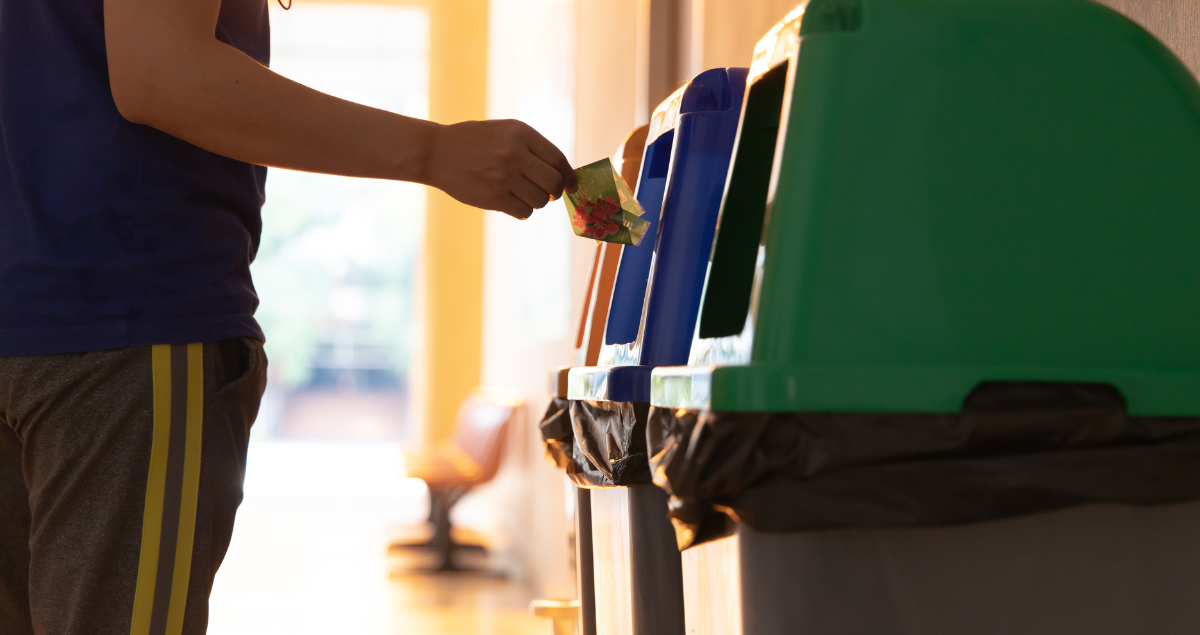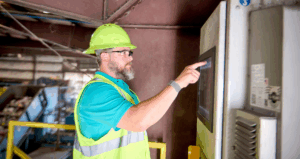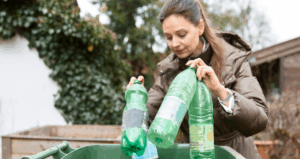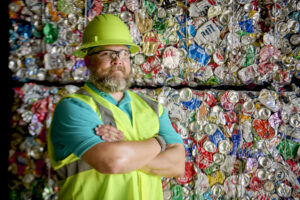Effective waste management is a key consideration for any large event or festival. These gatherings often generate significant amounts of waste—from food scraps and drink containers to boxes, promotional materials and décor. With thoughtful planning, however, event organizers can manage waste effectively while encouraging attendees to recycle. By developing a clear strategy and placing trash and recycling bins in the right locations, planners can reduce environmental impact and create a cleaner, more enjoyable experience for guests.
Creating an Event Waste Management Plan
Managing waste at large events and festivals comes with its own unique challenges. With hundreds of attendees producing trash such as food wrappers, drink cans and disposable containers, organizers often face issues with overflowing bins, littered grounds and negative environmental impact. To prevent these problems, strategic waste management planning is essential, including careful evaluation of bin placement, capacity and recycling options. Preparing early allows you to estimate how much waste will be generated and plan accordingly, helping create a cleaner and more enjoyable experience for everyone.
Before planning your event, check with your city or county to understand any local ordinances or regulations regarding waste management. Many municipalities have specific rules for how trash and recycling should be handled during public events, including requirements for bin placement, cleanup and contamination prevention. Some cities or counties may also offer resources such as loaner recycling stations or coordinated waste services to support event organizers.
In addition, confirm whether a special event permit is required. Permitting rules often depend on factors such as the number of attendees, use of public spaces, road closures or temporary structures such as tents or stages. In some areas, even private events on public land—including parks or plazas—require advance approval. Proper waste management planning is often a condition of obtaining event permits, so it’s important to address these requirements early in the process.
Begin by evaluating the key details of your event to guide your waste management strategy. Consider the type of event—whether it’s a festival, convention, concert or sporting event—as each has different waste patterns. Estimate expected attendance, as larger crowds typically generate more waste. Review the venue layout, noting whether it’s indoors or outdoors, available access points for waste collection vehicles and ideal locations for waste stations. Also consider the event duration, whether it’s a single-day or multi-day event.
Once the scope is clear, assess potential waste sources and set up clearly labeled bins for both trash and recycling. Reduce the use of disposable items such as maps and flyers, and avoid materials that are difficult to recycle, such as Styrofoam. Partner with your municipality or a reputable local waste management company to provide appropriately sized trash and recycling containers and ensure proper collection services.
Download this waste station setup checklist to help you place trash and recycling bins for maximum convenience and efficiency.
Set Up Effective Waste Stations
Create waste stations that are easy for attendees to use and understand. Use clearly labeled, color-coded bins with prominent signage to distinguish between recycling and trash. A simple two-bin system works well—one for recyclables such as cans, bottles and paper and one for landfill waste. Follow the 1:1 ratio of one recycling bin for every trash can.
Be strategic about waste and recycling bin placement. Position stations in high-traffic, easily accessible and predictable areas near:
- Food Vendors
- Beverage Stations
- Restrooms
- Entrances and Exits
- Vendor Areas
- Seating Zones
- Activity Centers
- Main Stages
- Parking Lots
- Walkways
Communicate with Attendees
To maximize recycling and minimize waste at your event, use multiple communication methods to guide and motivate attendees.
- Onsite signage: Use clear, visual instructions to guide proper waste disposal.
- Include images: Visual examples on signage help reduce recycling contamination.
- Promote sustainability: Encourage participation through stage announcements or emcee messaging.
Reduce Waste at the Source
One of the most effective ways to manage event waste is to reduce it before it starts.
- Go digital: Use apps or QR codes for schedules, tickets and brochures.
- Avoid single-use items: Offer reusable cups, utensils or encourage attendees to bring their own.
- Use bulk dispensers: Great for condiments, water and snacks.
Renting a Dumpster to Streamline Event Waste Management
Renting a dumpster offers a centralized, efficient solution for handling large volumes of waste at events. Here’s how it supports smoother operations.
- Simplifies cleanup: Provides a designated spot for trash and recyclables, allowing cleanup crews to work faster and more efficiently.
- Reduces clutter: Prevents waste from piling up around the venue, maintaining a cleaner and safer environment throughout the event.
- Improves logistics: Eliminates the need for numerous small bins and repeated trips to off-site disposal locations.
- Supports sustainability goals: Many dumpster rental companies offer recycling options to help reduce landfill waste.
- Ensures compliance: Helps meet local waste disposal regulations and venue requirements.
- Streamlines operations: Allows staff to empty full trash bins directly into the dumpster, reducing labor and effort.
- Flexible placement: A local rental provider such as Marpan will deliver and position the dumpster in a location that works best for your setup and needs.
A dumpster rental helps event organizers stay focused on the experience, not the mess left behind.
Partner with a Local Waste Management Provider
Partnering with a reputable local waste management company is essential for efficient and responsible event waste handling. A reliable provider will ensure timely delivery, pickup and proper placement of trash and recycling containers, helping your team stay organized and on schedule. They can also offer expert guidance on local recycling regulations, ensuring materials are properly sorted and processed, which reduces contamination and supports your sustainability goals. In addition, working with a local partner helps ensure compliance with municipal waste disposal requirements and may include added services such as on-site support or signage. This partnership not only streamlines operations but also reinforces your commitment to hosting a clean and environmentally responsible event.
Marpan offers dumpster rentals that make event waste management easy and cost-effective. With a range of container sizes available, we deliver when and where you need them. Our rental process is straightforward and our durable, high-quality containers are built for convenience. We’ll help you select the right size, schedule service that fits your timeline and maximize recycling at our state-of-the-art facility in Tallahassee, Florida.
About Marpan
Marpan has led Tallahassee and North Florida in debris management and processing of residential and commercial recyclable materials since 1966. Between 2008 and 2024, our recycling facility has recovered more than 2 billion pounds of material that would have otherwise been buried in a landfill. Our partnerships, long-time commitment to recycling and state-of-the-art facilities allow us to make a difference in our community every day. For more information on how and what we recycle, explore our services.




